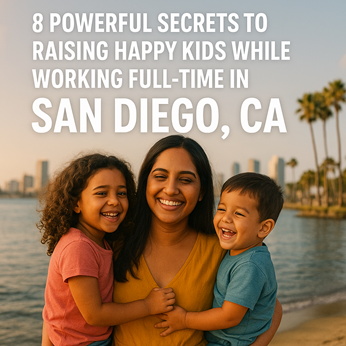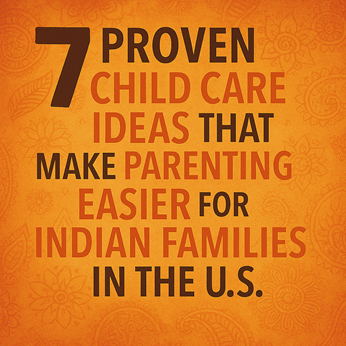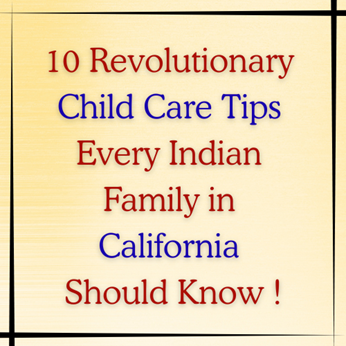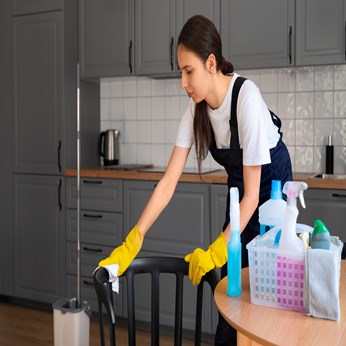The Complete New-Parent Guide; Everything you will need to know about handling a baby
During our discussion the other day in our family get-together we discovered that childcare issues are more significant today in the days gone by, with parents in the West being obsessed with not making the smallest mistake in bringing up their offspring. However the concern among new parents about their competency is a universal factor. Parenting issues are taught through books, magazines, websites, TV programs, baby gurus and parenting courses, but none of them are comprehensive but just supplementary to each other.
The websites especially of USA and UK serves as a storehouse of information about conception, pregnancy, birth and beyond in terms of factual comment and cyber support, with some websites offering thriving online antenatal community for pregnant women to interact with one another and share concerns, niggles and jokes and about the experiences of experienced mothers.
The value of books as far as baby-care information goes has diminished after the birth of the internet, with some resorting to reading books more as a medium of information gathering, while others find them too patronizing and unrelated to real life. It was felt that reading books gave information about the how of things making some new mothers to question their own abilities.
It helps to learn from experienced mothers, grandmothers and friends as their real life experiences are more enlightening than factual sources like books, web pages and magazines. One of the fantastic ways to learn the practical issues of parenting is to look after someone else’s children, though it may overlook the whole range of emotions you would be subjected to.
Trust your own instincts regarding parenting and rely on your judgment; become prepared by attending NHS and NCT classes and do not be bogged by manuals. Just do what works best for you and your baby and take help from a good support network when the going gets tough.
Here are a few tips regarding handling the baby:
Bringing the baby home:
• I can imagine your happiness and excitement in bringing your baby home to familiar circumstances and beginning your life as a family. First ensure that you get familiar with your baby’s car seat and avoid fumbling in the car park.
• Try to leave the hospital early in the day, so that you have enough time to be settled by bedtime. Also ensure that you plan on a simple prepared meal, so that you have enough time to concentrate on the baby.
• Make sure the first few days back home are visitor free days; this would remove the pressure of having to do things at a set time and would give you, your spouse and the baby enough rest.
• Never be afraid or proud to ask for help; keep someone lined up to ask for help or advice when you are desperate. You could also take their help when your spouse is busy at work and you would need help at home. You could also address your doubts to the midwife who would call on you during the first few days.
• Do not place high expectations on yourself during the first few days back home; just concentrate on the care of the baby and older siblings who also need your attention.
Time flies fast and you will soon know your baby best.
Soothing your crying baby:
A baby could cry for various reasons like when hungry, has a stomach- ache or colic or simply to be comforted on the arms or shoulder. Believe me; no baby is mature enough to know that he/she could be spoilt.
Soothe your baby if he/she cries:
• Pick your baby up and cuddle him/her. You could also use a baby-sling to make him/her feel close to you while you do other things. Rocking him/her and holding one in different positions also help.

• Some parents prefer the use of a dummy though it carries risk of problems in breastfeeding, speech and tooth.
• Change the wet or soiled nappy regularly as some babies cry over a soiled or wet nappy.
• Ensure that you keep the baby well fed regularly as babies cry out of hunger.
• Play familiar music like from pregnancy, womb music or sing to them to soothe your baby.
• Some babies are easily soothed by taking them out for a walk by pram; some are soothed by going for a drive by car.
• Socialize to make yourself and your baby relaxed; relaxed babies sleep better.
• Persistent crying could be helped by alternative therapies like cranial osteopathy.
Know how to hold or handle the newborn:
• Newborns are delicate and fragile; when you pick and hold your baby ensure you support the head and neck very well. Find out the most comfortable and best position for the baby.
• The position a baby prefers varies with age; newborns like to nuzzle close to the parent, babies with a tummy-ache or colic like to lie on the tummy across your lap, while babies that become more aware of their surroundings may like to be held forward facing.
• It is best to hold a baby upright after each feed to aid digestion. Always keep some muslin pieces of cloth handy as newborns are prone to getting sick at any time.

• Ensure that your baby feels secure by avoiding sudden and jerky movements; your movements should be purposeful and definite. Rocking movement makes a baby feel relaxed.
Baby safety tips:
• There are various risks in childcare, but we can do our bit to minimize them. Make your family and friends that help you aware of these baby safety tips.
• Ensure gift wrapping paper on new toys are not left around freely on the floor especially on stairs, as you/ growing baby could trip and fall.
• Ensure that everyone wears sensible shoes while carrying the baby up and down stairs. Ensure there are not objects on the way and you take your own time and do not hurry going up and down the stairs.
• Next avoid alcohol while breastfeeding as it could cause harmful effects to the baby.
• Ensure that your baby’s cot has firm and well-fitting mattress, with the smooth and secure bars that are between 1 inch to 2 ½ inch apart to avoid the baby’s head from being trapped. Cot safety also means not leaving anything like bibs or toys that have strings and could be caught around the baby’s neck.
• Ensure your baby sleeps on his/her back in the feet-to-foot position.
• Make sure that you do not leave the baby unattended while changing or bathing; he/she could roll off or slip under water. Try to make these times uninterrupted of telephone calls and other tasks.
• Ensure that you purchase sturdy and proper working equipment that carry a safety standard mark.
• Ensure that your baby travels in an approved well fitting car seat; avoid carry cot or cradle or holding the baby in your arms.
• Take utmost care to sterilize feeding bottles and teats.
• Take extra care while taking the baby outdoors in summer; apply a high factor sun cream and put a hat to prevent overheat and burns.
• Do not have hot drinks while handling babies; this would avoid scalds to both you and the baby.
As a last note, well informed, prepared and cautious parents are an asset to their children; I am sure you are one.
Image Courtesy: Google
Take the next step toward your goals
Share your requirement and find the best care providers in your area
-
Looking for a caretaker’s job? Build your profile and get in touch with families in your vicinity.
-
Discover nannies, babysitters, cooks, housekeepers, pet sitters, and elder care under one roof.
-
Get all the support you need to run a successful care center.
-
Search for appropriate centers near you depending on your needs.
Care Corner Insights: Blog Library

Best Child Care Hacks for Busy Indian Moms and Dads in the U.S.
Balancing work, home, and parenting is challenging, especially for Indian parents living in the U.S. Between cultural expectations, school schedules, extracurricular activities, and household responsibilities, managing daily life can often feel overw

A Revolutionary Guide for Indian Families in California
Living in California offers incredible opportunities, but Indian families often face unique challenges—balancing cultural values, adapting to a fast-paced lifestyle, handling child care, navigating school systems, and building a strong community away

8 Powerful Secrets to Raising Happy Kids While Working Full-Time in San Diego, CA
Balancing a demanding full-time job with raising happy, emotionally secure kids isn’t easy—especially in a vibrant, fast-paced city like San Diego. But with the right strategies, you can create a joyful, connected home environment without burning out

What’s the Best Way to Find a Trustworthy Indian Nanny in Fremont, CA ?
Hiring a nanny for your family is a big decision, especially when you want someone who understands your cultural values and parenting style. If you’re looking for a trustworthy Indian nanny in Fremont, CA, here are some effective strategies to make t

7 Proven Child Care Ideas That Make Parenting Easier for Indian Families in the U.S.
Raising children in the U.S. comes with a unique blend of opportunities and challenges—especially for Indian families trying to balance cultural values, busy work schedules, and daily childcare responsibilities. These seven proven childcare ideas can

9 Must-Know Tips for Hiring a Nanny in San Jose
Finding the right nanny for your family in San Jose can feel like a huge task — especially when you want someone who is trustworthy, experienced, and a perfect match for your child’s needs. Whether you’re a first-time parent or looking to replace you

10 Revolutionary Child Care Tips Every Indian Family in California Should Know in 2025
1. Bring India Home — Every Day Your children might grow up in California, but they can still grow with India. Let Indian traditions live inside your home — evening prayers, storytelling in your native language, or cooking regional dishes together.

Deep Cleaning Your House: Room-by-Room Checklist for a Thorough Clean
A sparkling clean home isn’t just about looks—it’s about health, comfort, and peace of mind. Whether you’re prepping for a festival, hosting guests, or just tired of the clutter, a deep clean can transform your space. But where do you start? Here’s a

What are Senior Apartments? Experts Explain Independent Living for Older Adults
As we age, our needs and lifestyles evolve—but one thing remains constant: the desire for independence. Senior apartments are designed precisely with this in mind, offering older adults a living arrangement that balances freedom with comfort, safety,

Baby Sleep Problems: What is Sleep Regression and How to Handle It
If you’re a parent, you know that baby sleep is one of the greatest mysteries of life. One day your little one is snoozing like an angel, and the next day they’re suddenly waking up every hour, fussing, or refusing to nap. Before you panic, there’s a